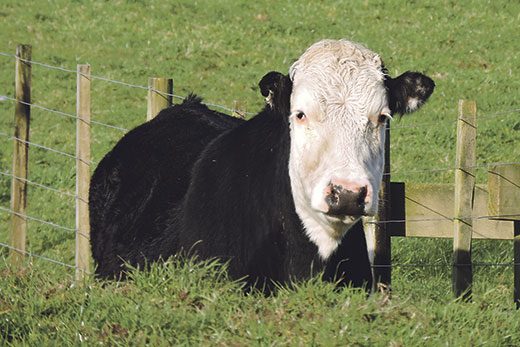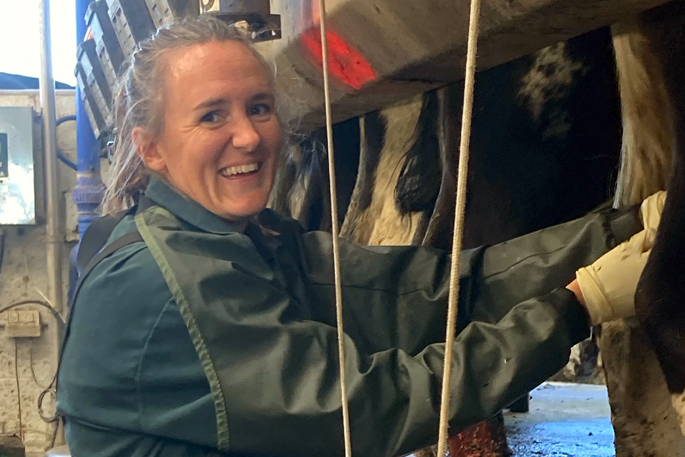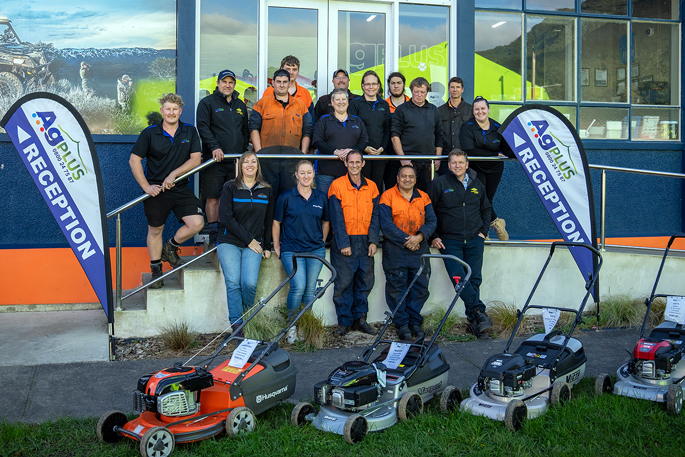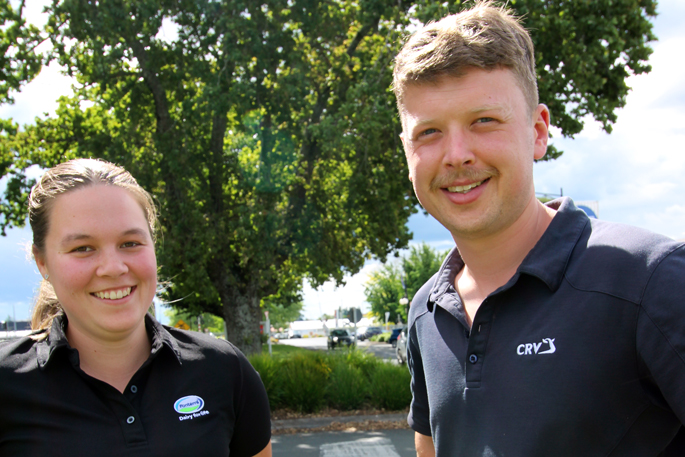Landcorp’s decision to stop feeding its livestock Palm Kernel Expeller is being applauded by two New Zealand farmers who, following a visit to Malaysia four years ago, raised serious concerns about biosecurity risks associated with the feed. Colin MacKinnon of the Bay of Plenty and David Clark of the South Island say the decision of New Zealand’s biggest farmer to stop using PKE is great news for New Zealand. “It is good to see NZ’s largest farmer farming in a sustainable manner and taking a pride in what it produces,” says David, who is Federated Farmers grain and seed vice-chairman Colin, who is currently arable chairman for Federated Farmers BOP, says the move reflects a trend being seen among other farmers too. “It will help make NZ safer from biosecurity incursions and possible trade access issues.” Their comments follow an announcement by Landcorp chief executive Steven Carden that all Landcorp farms will transition to alternative feed supplements by June 2017. “One of the real points of difference for NZ farming is our ability to grow grass and produce grass-fed animals. There is a growing interest in this food globally,” says Steven. When Colin and David visited Malaysia as delegates at an official Palm Industry Board Conference four years ago they paid an official visit to a PKE operation but also managed unofficial visits to another. What they saw raised serious concerns, says Colin. “The official site we visited was excellent but when we asked where that palm kernel was going, we were told to Europe. “None of it went to New Zealand.” Foot and mouth In the second facility the PKE, which is a by-product of the palm oil industry, was exposed to contamination by birds, animals and insects. And Colin says there was no way to trace exactly where the feed sent to NZ came from because the production from several plants was required to make up the shipments. “Malaysia has foot and mouth disease among its animals, and animals graze in the palm plantations, which is of real concern for NZ.” Of concern too is the potential for the arrival of other unwanted pests and diseases in the PKE shipments. Regulations tightened As a result of the report they wrote following their visit, David says the Minister for Primary Industries made changes to import regulations for PKE, which were “long overdue and essential”. David says NZ has the ability to grow high quality feed for the dairy industry and has a great story to tell about its farming industry. “A number of different feeds are grown in NZ, including grass, maize and cereal silage.” Colin says he’s surprised farmers’ unions among our trading partners haven’t protested about the amount of imported feed used by NZ’s dairy industry. While PKE has proved a valuable supplement in times of drought, Colin says the dairy industry has come to rely on it year-round and a whole industry has developed around its importation, distribution and feeding systems. Rural economies Landcorp and other farmers returning to growing their own supplementary feeds and buying in NZ-grown supplements will be good thing on many levels, says Colin. “It’s key to that over-used word ‘sustainability’. “Growing maize crops, for example, helps reduce nitrogen leaching as maize roots can extract the nitrogen from deeper down in the soil than grass can.” Supporting local contractors, who grow and harvest supplementary crops, also helps keep rural communities economically viable. “There is a massive multiplication factor in the value of local industries.” David and Colin say farmers growing supplementary feeds and contracting businesses growing and harvesting spend money locally, supporting a wide range of service and retail industries; plus on another level, local schools and community groups benefit too. As well as his concerns about PKE, Colin is also worried about the increasing biosecurity incursions affecting NZ’s primary industries from the vine disease Psa-V in kiwifruit to velvetleaf for cropping industries; and most recently the pea weevil, which may now have reached the South Island. In July the pea weevil Bruchus pisorum was found in pea seeds grown on eight different Wairarapa properties and in three seed storage facilities in the region.
Wednesday, April 17, 2024
Posted: 10:00am Monday 29 Aug, 2016 | By Elaine Fisher elaine@thesun.co.nz
Landcorp’s PKE sustainability decision







0 Comments
Leave a Comment